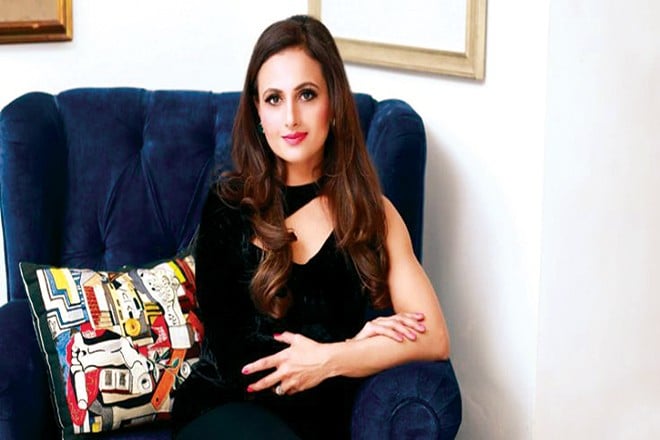

The beauty industry, locally and internationally, is one that inflation does not hit. Like decisions to do with healthcare - beauty purchases are rarely dictated by money. This is primarily because the key drivers of shopper conversion in this category perceive product effectiveness and the quality of ingredients, rather than price alone. This makes it a unique industry that should be looked at as such, especially since the local industry has grown tenfold in the past two decades.
We spoke to the experts to get a better understanding of the situation.
Myra Qureshi, CEO of Conatural (launched in 2014) believes that beauty products are very categorized so it’s hard to generalize but all in all, women in Pakistan, through generations, have spent a lot of money looking after themselves. "Colour cosmetics in the past 10 years have boomed but looking at the beauty industry holistically, one could say it’s between infancy and flourishing," she says.
Nabila, who brings 34 years of experience to her brand agrees with Myra in that the industry is in its infancy but is growing fast.
Buying decisions
Consumers, mostly women, are on a constant journey of exploration with beauty products. They enjoy new products which is part of a generational shift brought on by how much they are exposed to. Millennials are rejecting the brands their parents preferred and are seeking out sometimes locally made or Instagram-favoured products. They enjoy hunting out brands that resonate with them and support causes that are important to them. They generally want to know that their purchases will benefit society in meaningful ways. With so many buyers prioritizing activism, it is not surprising that beauty brands in Pakistan have also realized that to appeal to young people, they have to offer more than functionality and affordability.
The Veet Miss Super Model platform that was aimed at grooming the next big model was changed to Veet Academy where women were given much more holistic opportunities to let their talents shine. The move represents the brands realization that people now believe beauty is now more than just skin deep. Another example is of the Gillette campaign, where the company’s 30-year-old slogan, "The Best a Man Can Get," was turned into an introspective reflection on toxic masculinity. Even though they got a lot of backlash, it was important for the brand to stand for something more.
Traditionally, Pakistan’s beauty market has largely been dominated by global conglomerates - P&G, Unilever, L’Oreal, Reckitt Benckiser and GSK. Holding their own against these giants with a smaller but yet loyal consumer base are several heritage brands, including Hashmi, Medora and Saeed Ghani to name a few. An interesting development on the landscape has also been the launch of a host of homegrown personal care and beauty brands. There are those from salon owners who have created their own lines like Massarat Misbah’s MM Makeup (launched in 2015) and Nabila’s Zero Makeup (launched in 2017). Luscious Cosmetics also launched in 2007 and thrived, making it to the racks of Sephora internationally. Conatural came into the market at a time when no other prominent brand was providing natural and organic products.
Around the world and in Pakistan, the talk is all about going back to natural ingredients to solve skin and hair problems, which are two of the largest in the personal care segment. Locally, skin precedes hair with people spending mostly on fairness and whiteness creams.
"Unfortunately our people love whitening creams and coloured cosmetics but this mindset needs to change," says Nabila. Within the market requirement however, brands are fulfilling the demand with the launch of variants like Fair & Lovely Herbal, for people who want a natural solution to attain flawless fairness. In line with the rising demand for natural products is also the expanding niche of ‘halal beauty’, which has forever been a concern of Muslim consumer’s world over who have been worrying about lipstick with pig fat and nail varnish that needs to be removed to pray. Catering to this growing demand, Inglot launched a breathable nail polish and MM Makeup launched an entire halal-certified makeup line. Luscious Cosmetics instead of acquiring the halal claim, chose to become vegan-certified by People for the Ethical Treatment of Animals (PETA), a universally recognized group and in turn, halal as well.
Beauty trends
"Trends are good to make a quick buck but the knowledge and disruption is what builds a lasting brand," says Nabila. Myra, on the other hand feels that beauty trends are important to follow. "Argan oil was all the rage a few years ago and a lot of people incorporated it into their brands. It’s all about how fast one can translate them into their business and market."
International faring of local products
"Local manufacturers have gained a bad reputation because our masses wanted to be fair in seven days so they started using harmful chemicals in their products for a quick fix," says Myra. "These include chemicals that are banned locally and abroad, like mercury and lead, so there was a massive trend to buy international products. Plus, our quality standards have been inconsistent over the years so the general perception that they are not good stays."
In the same vein she adds that Conatural products are doing well and have been selling in the UAE and UK. "Our products fulfill the Southasian skin requirements which is a huge market.
Additionally, our labour is cheap so we can offer cost competitiveness to the international market." Nabila concurs, "The general myth is that imported products are better but the consumer needs to be educated about the usage, ingredients and benefits of each product."